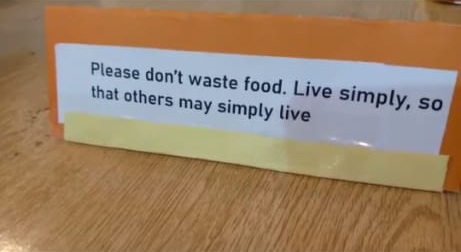
The students of Semester III, NUMS Department of Psychology carried out a ‘Social Project’ spanned over the month of May 2022 under the supervision of Professor Dr. Shazia Khalid, Head, NUMS Department of Psychology. The prime purpose of this project was to instill the habit of reflective and critical thinking among the emerging adults, develop sensitivity for social problems, and promote a worldview where students can play instrumental role in designing and applying small scale intervention plans at community level. The students were instructed to formulate 5 groups each comprising of 4 to 5 members with the objective to plan, execute, and evaluate an activity on a topic entailing sustainable development of society. The titles of the ‘Social Project’ included ‘Respect for Women (SDG 5: Gender Equality; SDG 3: Good Health and Wellbeing),’ ‘Food Wastage (SDG 12: Responsible Consumption and Production; SDG 3: Good Health and Wellbeing; SDG 2: Zero Poverty),’ ‘Class Discrimination (SDG 10: Reduced Inequalities; SDG 5: Gender Equality; SDG 3: Good Health and Wellbeing),’ ‘Littering (SDG 13: Climate Action; SDG 3: Good Health and Wellbeing),’ and ‘Conservation (SDG 12: Responsible Consumption and Production; SDG 3: Good Health and Wellbeing).’ The groups selected the projects specifically addressing different SDGs and prepared systematic methodologies to achieve the aims accordingly. The major target of the population for activities comprised of young adults with age ranging from 17 to 22 men and women. Initially, the groups prepared presentations and brochures on their social projects and conducted a trial study on prospective participants. Each presentation comprised of 10 minutes’ intervention program in which global and local statistics about their particular topics, objectives of the program, determinants, and national and international effective programs were included. Groups utilized different strategies such as videos, posters, self-made documentaries, and interviews of experts to highlight social problems and different ways through which communities can be impacted. After approval from the instructor, each program was implemented on participants comprising of 13 to 30 students. The sessions were followed by question and answers and participatory discussion. In order to reach out to bigger audience, the group which was working on ‘Respect for Women’ used zoom link to deliver their agenda. The students also used interactive activities to convey their messages. For instance, one group designed specific placards related to ‘food wastage,’ types of food wastage at commercial, industrial, domestic and agricultural level) and how it contributes to poverty and hunger and provides an opportunity to develop an attitude of responsible consumption. These placards were placed on each table in the café. The outcomes of the projects were also determined by the groups. In case of ‘Littering,’ for example, an Instagram account titled as ‘say no to littering’ has been started. Other groups such as the ones working on ‘Class Discrimination’ and ‘Conservation’ conducted post intervention interviews to assess the effectiveness of their programs. Later, each group presented their activities on May 30 and 31, 2022 as part of their course titled ‘Social Theories.’
.jpg)
.jpg)
.jpg)
.jpg)
.jpg)